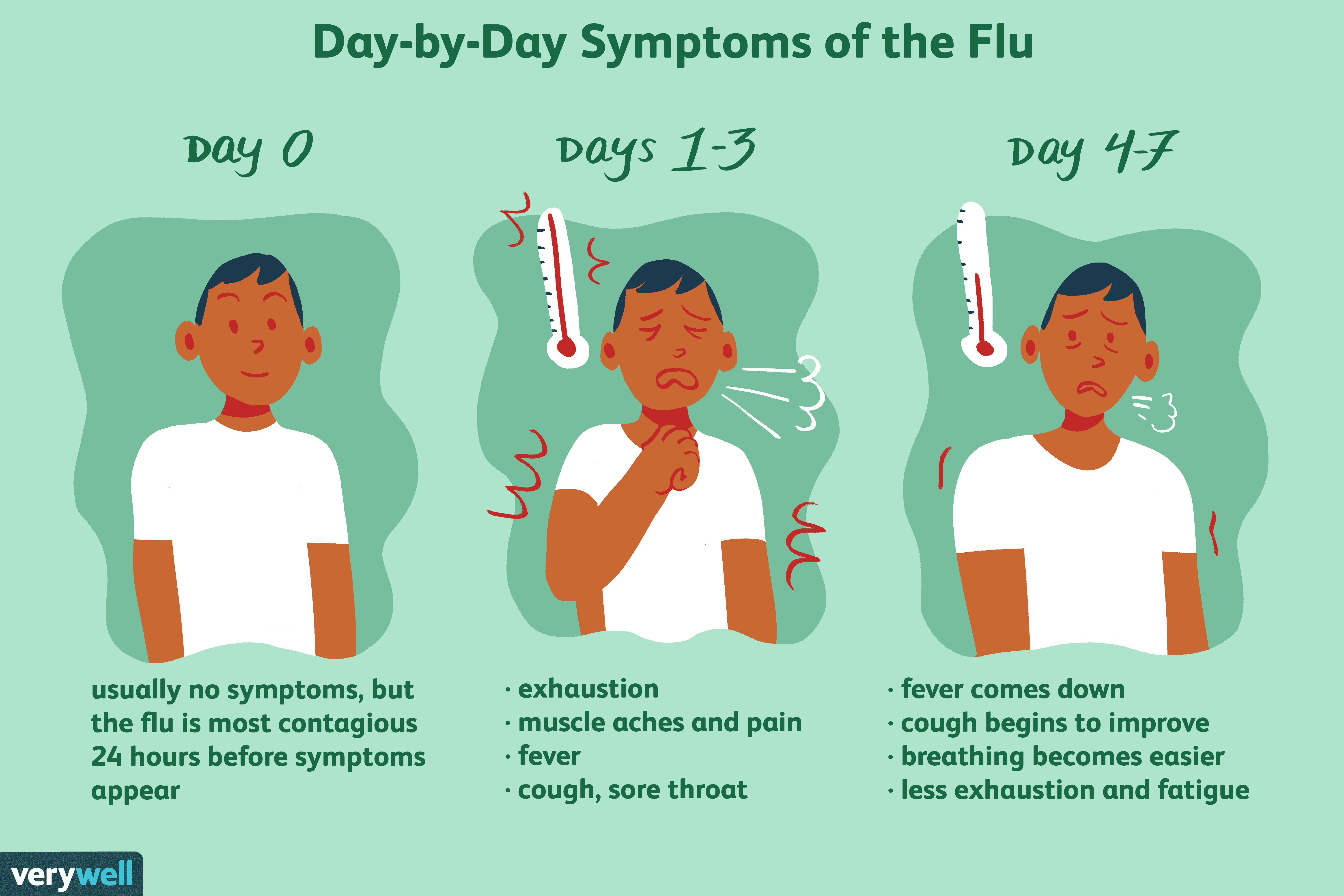The Flu Day: Managing Symptoms Hourly

As the first light of dawn creeps into your room, you’re met with an unwelcome sensation - the dreaded flu. Your body aches, your throat is sore, and all you can think about is crawling back under the covers and waiting for the misery to pass. But as the hours tick by, you know you need to take control of your symptoms to feel even remotely human again. The question is, where do you start?
One of the most critical aspects of managing flu symptoms is understanding how they evolve over time. The flu doesn’t just strike and then linger at the same intensity; its symptoms can change, sometimes dramatically, as the day progresses. By recognizing these hourly fluctuations, you can tailor your self-care approach to tackle the worst of it head-on.
Morning Misery (6:00 AM - 8:00 AM)
The initial hours of waking up with the flu can be particularly brutal. Your body is dehydrated from a night of feverish sleep, and your throat feels like it’s been put through a wringer. Here are a few strategies to help you navigate these challenging morning hours:
- Hydrate Immediately: Reach for a glass of water or, better yet, an electrolyte-rich beverage like coconut water or a sports drink to replenish lost salts and hydration.
- Soften Your Throat: Gargle with warm salt water several times to ease the soreness. You can also suck on lozenges or try a throat spray to numb the pain temporarily.
- Ease into Movement: Don’t rush out of bed. Gradually get moving to avoid exacerbating any dizziness from dehydration or fever.
Mid-Morning Recovery (8:00 AM - 12:00 PM)
As the morning progresses, your focus should shift towards calming your body and attempting to regain some energy. Consider the following:
- Steam Inhalation: Spend some time in a steamy bathroom or use a humidifier to loosen up any congestion in your lungs and sinuses.
- Nutritional Boost: Opt for clear broths, electrolyte-rich drinks, or bland foods like crackers or toast if you can manage to eat. Avoid anything heavy or spicy.
- Rest and Relaxation: While it’s tempting to try and push through, remember that rest is a crucial part of recovery. Aim for short naps or simply lying down and relaxing.
Lunchtime Strategies (12:00 PM - 2:00 PM)
Lunchtime can be a turning point, offering an opportunity to reassess your symptoms and adjust your care plan accordingly. Some points to consider:
- Warm Liquids: Continue with warm, comforting liquids like tea or soup. These can help soothe your throat and provide essential hydration.
- Over-the-Counter (OTC) Medications: If your symptoms include fever, headache, or body aches, consider taking appropriate OTC medications like acetaminophen or ibuprofen. Always follow the recommended dosage and consult with a healthcare professional if you’re unsure.
- Monitor Your Temperature: Keep an eye on your fever. If it spikes or persists, it may be a sign that you need medical attention.
Afternoon Lull (2:00 PM - 5:00 PM)
The post-lunch period can sometimes bring a false sense of security, as your symptoms may temporarily subside or seem less severe. However, it’s essential to maintain your self-care regimen:
- Stay Hydrated: Continue drinking plenty of fluids. Aim for small, frequent sips to avoid overwhelming your stomach.
- Cold and Flu Medications: If you’re using combination products for cold and flu relief, ensure you’re not exceeding the recommended dosage of any single ingredient.
- Entertainment and Distraction: Engage in light activities that don’t exert you too much, like reading, listening to music, or watching a movie. Sometimes, a mental distraction can help alleviate physical discomfort.
Evening Relief (5:00 PM - 8:00 PM)
As the day winds down, your goal should be to prepare your body for a restful night’s sleep, which is crucial for recovery:
- Wind Down: Start winding down early. Avoid screens for at least an hour before bedtime, as the blue light can interfere with your sleep.
- Warm Bath or Shower: Consider taking a warm bath or shower. The steam can help clear your sinuses, and the warmth can soothe your muscles.
- Prepare for Night: Have everything you might need during the night within easy reach, including water, tissues, and any medication you might need to take.
Nighttime Comfort (8:00 PM - 6:00 AM)
Finally, as you settle in for the night, prioritize comfort and rest:
- Elevate Your Head: Sleep with your head slightly elevated using extra pillows. This can help reduce congestion by preventing mucus from accumulating in your sinuses.
- Keep Tissues Handy: Have tissues nearby in case you need them during the night.
- Monitor Your Symptoms: If you notice any severe symptoms, such as difficulty breathing, chest pain, or a fever that won’t break, seek medical attention immediately.
Conclusion
Managing flu symptoms hour by hour requires a combination of self-care strategies, medication when necessary, and rest. By understanding how your symptoms can evolve throughout the day and adjusting your approach accordingly, you can mitigate some of the flu’s worst effects and set yourself up for a smoother recovery. Remember, if your symptoms worsen or you experience severe signs like difficulty breathing, seek medical help without delay.
What are the most effective ways to manage flu symptoms in the morning?
+Effective morning symptom management includes immediate hydration with water or electrolyte-rich beverages, gargling with warm salt water to soothe the throat, and easing into movement to avoid dizziness. Also, consider taking a warm bath or shower to help loosen mucus and relax your muscles.
How often should I take over-the-counter medications for the flu?
+Always follow the recommended dosage on the packaging of your over-the-counter medication and consult with a healthcare professional if you’re unsure. It’s also crucial to monitor your symptoms and adjust your medication use accordingly, ensuring you don’t exceed the recommended daily intake of any ingredient.
What are some signs that I should seek immediate medical attention for the flu?
+Severe symptoms that warrant immediate medical attention include difficulty breathing, chest pain, severe headache, confusion, or a fever that won’t break with medication. Additionally, if you experience severe vomiting, unable to keep fluids down, or show signs of dehydration, such as excessive thirst, dark urine, or dizziness, seek help promptly.


